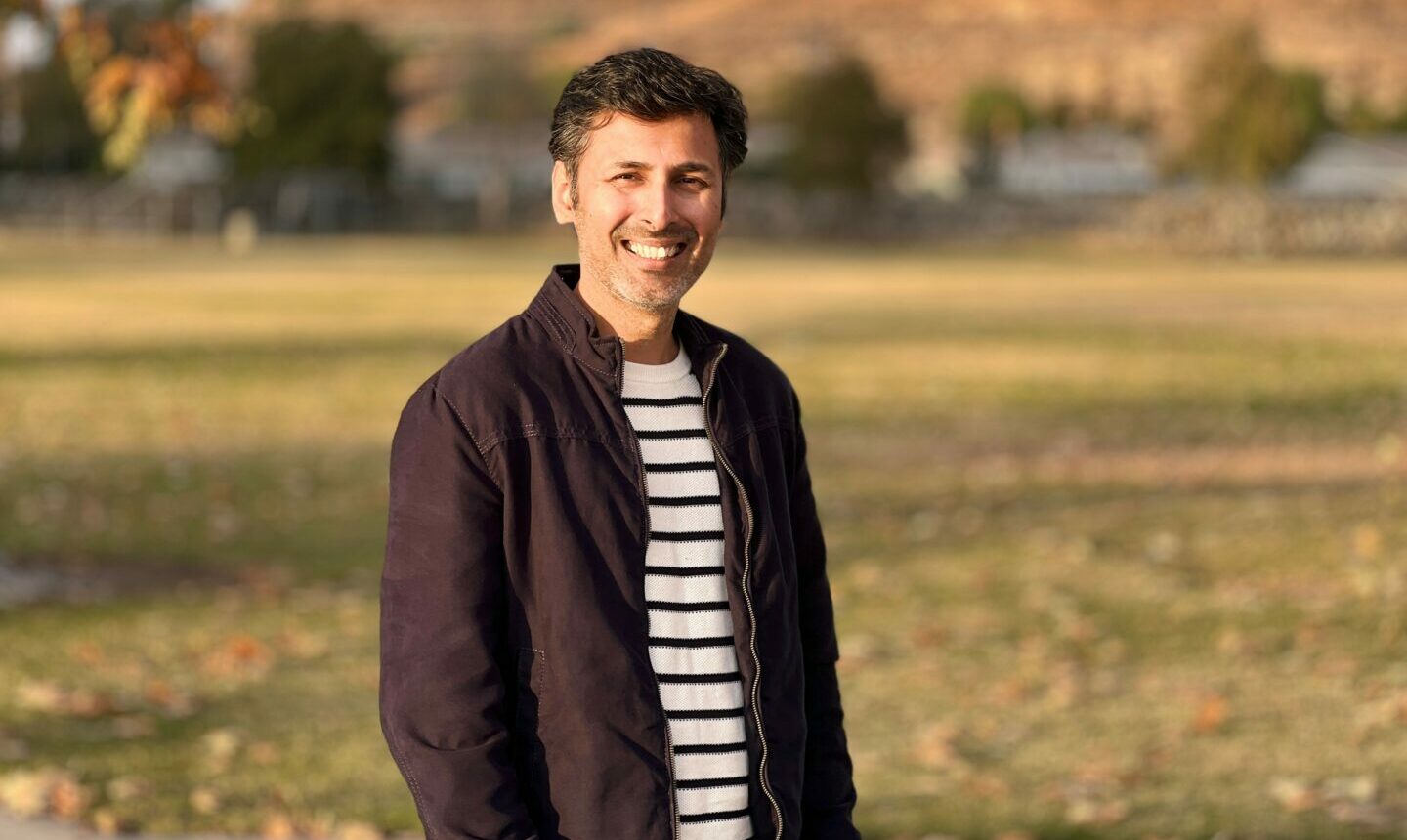We were lucky to catch up with Cara H. Cadwallader recently and have shared our conversation below.
Hi Cara H., thank you so much for joining us today. There are so many topics we could discuss, but perhaps one of the most relevant is empathy because it’s at the core of great leadership and so we’d love to hear about how you developed your empathy?
Nineteen years old and I am working as a counselor at an all-girls summer camp in upstate New York. On lunch break one day, one of my peers received bad news that had her distraught. Hysterically crying and lost in a sea of emotion, I thought I would offer her my shoulder but, when I did, I felt awkward and self-conscious. I realized, not only did I not know how to empathize but, I had no clue how to console her, or anyone! Then, I immediately felt embarrassed that I didn’t have such an important life skill in my tool belt of life sharpened and ready to use.
Fast forward two years, and I am getting to know a classmate in my dance department at university. Hiro was an exchange student from Japan who was willing to invest his precious time and energy into teaching me communication skills. Hiro taught me the basics – how to listen for listening’s sake, not just to respond, and how to summarize what I have heard to my listener so that this other person feels seen.
A decade + later, I found myself in a partnership with a deeply empathetic man whose compassion I needed to harness. Burt was an emotionally intelligent person who would speak with me about the invisibility of shame and how it shows up in our lives. My six-year relationship with Burt, and his subsequent death four-years ago to a recurrence of cancer at the onset of Covid, has been my life’s greatest invitation to dive into the messiness of all of my emotions.
However, it’s essential that we mention the conditions for why we need to develop empathy in the first place – especially when, I believe, we are each born with this life-affirming skill. In my opinion, it is a quality that has been conditioned out of us due to the past thousands of years of force and violence that we have all collectively inherited. It was conditioned out of me as well due to my personal experience of being raised in an abusive home where emotional neglect was the norm, vulnerability was frowned upon and empathy was met with antagonism. There was only one “right” way to do most things, which is a very selfish perspective that can and does breed narcissism. And I was being raised to behave in all these ways!
I am forever grateful and changed by the many teachers I have met on my life path – especially, my son’s father – who have helped me become the emotionally fit person I am today. What I have learned the most over the past few years is that the more compassion I embody for myself, the more empathy I can and do experience for others!
Thanks, so before we move on maybe you can share a bit more about yourself?
We visit the gym to work our physical bodies out, and we see a therapist to tend to our mental body, But where do we go to – and how do we – tend to our emotional bodies?
With upwards of 34,000 emotions and feelings that a person can experience daily, diving into our emotional bodies can sometimes feel overwhelming, if not downright scary. It can feel like we’re going to drown! In result, too many relationships crash and burn, or can’t get off the ground, because too many people simply don’t have the necessary skills for staying grounded amidst the turbulence that can accompany our emotional bodies. Too often, people run away or don’t remain present in order to work through the conflict that is essential for all relationships to grow.
Intimacy, in all forms, brings to the surface our experiences with our most core relationships, i.e. our parents. Lucky you if you had a functioning, healthy model to look towards! Most of us however, did not. Thus, it is our close connections with one another that illuminate the places where we still need the most healing. We must become the parents we always needed to ourselves in order to truly care for our “inner child.” (As well as other children, of course.)
According to the 80-year-old, Harvard Adult Development study, “Close relationships, more than money or fame, are what keep people happy throughout their lives. Those ties protect people from life’s discontents, help to delay mental and physical decline, and are a better predictor of long and happy lives than social class, IQ or even genes.”
Emotional Fitness Dojo is where you can go to tend to your emotional fitness so that you can experience greater ease and grace in all of your relationships – from business to home, and from marriage to your children. Offering singular, 90-minute sessions, 5-packs of couple and family sessions, and months-long coaching programs, our Dojo is primarily located online so that you have access to it at your own timing and pace from the privacy of your home. Emotional Fitness Dojo also offers group experiences for embodying all of your core emotions, which also include joy, peace and passion! But in order to sustain these, we need to deeply feel – and consciously move – their counter emotions of grief, fear and rage.
Emotional Fitness Dojo is the legacy of my late partner, Burt Lo. Burt believed that if each person had the ability to identify what they are feeling in real time, while being able to clearly communicate about it, then our planet would be much saner and happier. Talking about emotional fitness is what lit Burt up the most during the last few years of his life. As a life-long dancer, I would often tell him, “You need embodied exercises for teaching people how to do this work!”
Burt’s death forced me to deeply feel my core emotions – specifically, grief, rage and fear – so that I can integrate them in order to be present to my young son. Especially over the last four, confounding years that have also included a global pandemic, national and international protests and environmental calamity!
The more compassion I have come to harness for myself, the more empathy for others I have developed. As well, I have learned how to not take what other people say or do personally. In result, I am responding less defensively to life. I see myself the most clearly than I ever have, and I have now come to understand how our personal and collective healing is very much connected to identifying all the ways in which shame shows up inside of us.
I have come to authentically like who I am and know my worth. This is the outcome of being an emotionally fit person. It’s how we access our greatest human potential as well as authentic power for creating the life we have always dreamed of for ourselves.
There is so much advice out there about all the different skills and qualities folks need to develop in order to succeed in today’s highly competitive environment and often it can feel overwhelming. So, if we had to break it down to just the three that matter most, which three skills or qualities would you focus on?
Embodiment – Growing up, I always wanted to be close to others but I didn’t have the skills to be able to clearly communicate my desires and needs. Actually, I was really afraid of getting hurt and being vulnerable, so I often didn’t speak up. Still, I intuited that by following my body’s cues towards play, I would get a lot of my needs met. Embodiment is simply the act of being in our bodies. So anything that brings us down, out of our minds, and into our bodies, is essential. For me, that looks like dancing and singing but I also like to walk a lot as well as play games with my child. Like soccer, bike riding, swimming, etc. Meditation is a form of embodiment that is great too. However, for people like me who are active and can’t sit still, I highly recommend singing, playing like you did when you were a child, and authentic movement/dance.
Self Awareness – I am lucky because I was born with the gift of self awareness. It’s the ability to see one’s self and one’s actions from an expanded point of view, like that of “the witnesser.” It’s a bird’s eye perspective that sees life less personally, and more as a reverberation of patterns playing out over time. We all have blindspots – areas in ourselves that we can’t see. Our relationships with each other help to point out what we can’t see in ourselves as well as what we’re missing in order to evolve and grow.
Willingness/Vulnerability – This is a ‘beginner’s mind’ mentality, and it requires courage. When we are just starting out learning anything, we aren’t so-called ‘experts.’ Instead, we often fall down and look silly. You have to be willing to look like a fool, or ‘a dork,’ as I like to say. You have to be able to laugh at yourself and not take yourself, or life, too seriously. Otherwise, you will miss out on all of the fun. And you have to be able to receive criticism and constructive feedback from others – especially from those who truly love you and want to see you shine and thrive.
Our emotional health is directly proportional to our ability to be in our bodies because this is where our vulnerability is located. Being vulnerable is essential because this is the only way that we can authentically and deeply connect with ourselves and each other. Thus, in our Emotional Fitness Dojo we use these two tools to work on and expand our self-awareness.
With these three qualities and skills, you can become an emotionally fit person who is adept at handling whatever life throws at you. Sometimes, in a calm and caring manner and other times as a quick-moving, instinctual response – it all depends on whatever the moment calls for. And when mistakes and failure happens, because they will (otherwise you’re not trying), you will have the presence and capacity to resolve any conflicts and to clean up any messes that were made.
What do you do when you feel overwhelmed? Any advice or strategies?
When I feel overwhelmed, I seemingly can’t take deep enough breaths. I feel a bit panicky, nervous, anxious and manic inside of my body, and as though I don’t have enough time to do everything I need to get done. Being a lone mother to a young child, especially amidst all of our collective chaos and confusion during the last few years, has felt extremely overwhelming. It’s felt like the weight of the world is on my shoulders in how I have to play both roles – mom and dad – in being the disciplinarian and the nurturer as well as the bread-winner and the domestic-goddess.
What do I do? I breathe. In the midst of it all, I remember to take deeper breaths.
I acknowledge my feelings. “Oh, hey overwhelm! You’re here again? Do you need a hug?” I wrap my arms around myself and hug and kiss me, like my partner would do if he were still alive. I assure myself that it is 100% okay to feel all that I am feeling, that my feelings are completely normal given our circumstances and that it is okay and normal to struggle. “What will make you feel better?” I then ask myself.
Asking for help is always something I can do to make myself feel better.
I ask for help.
Sometimes, that’s just someone to breathe with. When I breathe with another, I am usually inspired to breathe really deeply for a longer period of time. I like to practice my ‘Cat breath’ in which I am inhaling deeply through my nose, down past my lungs and into my gut where I massage my internal organs with a guttural, purring sound.
Practicing breath work together is an essential component in our Dojo.
I will also reflect on how else I can receive help – like, asking someone to babysit my son for a longer period of time so I can go out for some alone-time. Or asking for more direct feedback, and/or editing, on my writing.
I will also just reach out to talk to others about how I am feeling. Sometimes, all I need is an ear and to feel heard and seen so that I can let go and move on.
Contact Info:
- Website: emotionalfitnessdojo.com
- Instagram: youaremagicmama
- Facebook: CaraHCadwallder
- Linkedin: www.linkedin.com/in/cara-cadwallader-queen-bee






Image Credits
Sylvii Sen Luis Enrique Aguilar




